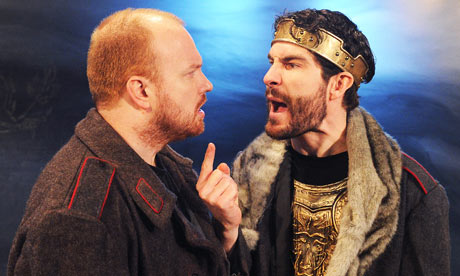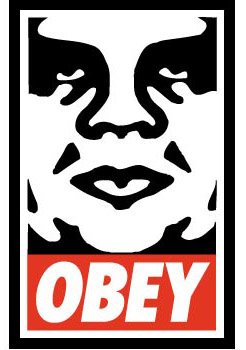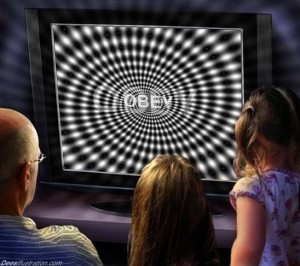Independence Ain't Dependence
 •
by
•
by Silas Soule
Live Sharp  Look Smart
Look Smart
Awesome throw-back sound track!!:
Independence, by the Gang of Four
HAPPY INDEPENDENCE DAY!!

To commemorate this special day, here is a special PQ-esque review on freedom, mind-control and ways to break out of it... Apologies if it is not ENTIRELY game-related.
xoxoxoxoxoxoxxo,
PQ
Qui Tam: Blowing the Whistle on Mind-Control Freaks
Fascinating Background Material from Other Game Worlds
* The Mandate of Heaven was a concept developed under the Zhou Kings social role-playing game, popular about ~3122 - 2256 BeR (BeR = Before eRepublik). It stated that Heaven will withdraw its mandate from an unjust ruler.
* Mencius was a Chinese philosopher-player, ~2372-2289 BeR, who declared that players have the right to overthrow incompetent rulers. As you might imagine, he was not terribly popular with incompetent rulers, who tended to ban his writings while they were CP.

* Magna Carta (meaning the Great Charter) was established on the 15th of June, 794 BeR, by a CP named King John, who agreed to proclaim, after a bit of prodding from a group of influential "Master card" type players, that the will of kings cannot be arbitrary but instead that life for free players must be organized according to the law of the land.

* Various religious folks in the gaming framework known generally as the Western Lands (but not, understandably, double-predestinarian Presbyterians) have declared from time to time that monarchs who pretend to reign "by the grace of Dio" have in fact simply created a pretense. Or as the famous cartoon wit Calvin once put it, "a mere cheat" so that they could "reign without controls". However, it should also be noted that many of these thinkers also cautioned that excessive banal "revolutionism" tends to exacerbate rather than to ameliorate tyranny.
* Magistrates in westernish game worlds as far back as the Roman Tribunes, the Spartan Ephori and the ancient Athenian Demarchs (all well-known pre-eRepublikan gaming eras), had a clear duty to "curb the tyranny of kings".
* A certain John Locke (but not the one from Lost) influenced a good number of players round about 320 BeR by declaring that players should instigate revolution against governments which act against the interest of the citizens. He characterized this not only as a right, but as an obligation.
* Many players have been influenced by the Locken idea of revolution as a duty. For example, a number of Euro-originated wags and wigs in Occupied Haudenosaunee (aka "British" "North America") took up this idea quite seriously around 233 BeR. They ended up creating a fairly popular, if occasionally troubled and a bit obese, Republik that has since gifted to all the game worlds, among other things, an increased appreciation for jazz and for civil rights.

There are many other precedents we could point to -- legal, cultural, theoretical, philosophical and ethico-religious -- that have helped to establish "a right to rebel":
* The Polish concept of rokosz, which encourages nobles to rebel against unjust kings.
* Article 10 of the New Hampshire Bill of Rights, which states, quite poetically, that "The doctrine of nonresistance against arbitrary power, and oppression, is absurd, slavish, and destructive of the good and happiness of mankind."
* The Charter of Fundamental Rights of the Czech Republic states: "Citizens have the right to resist anybody who would do away with the democratic order of human rights and fundamental freedoms".
...and so on and so forth.

That is all well and good, right? Never hurts to review how we got here. But I was thinking that -- as we here in the Big Ol' Former Haudenosaunee Republic prepare to celebrate the 238th anniversary of our Revolution in our traditional way, that is, by blowing shit up and eating too much -- that this might be a good time to dig a little deeper into the modern and psychologicalish aspects of freedom and its opposites.
First, a few notes on how modern global capital and its Cthulhuish acolytes go about brain-f**king players, especially younger players, into believing that they do NOT have a right and a duty to rebel.
Second, a few more notes on how a player might go about breaking down these kinds of undesired, unwarranted and unacceptable mind-screws.
How THEY Do It To You

These are the top methods that the Man uses in the Modern World to keep the proles under his thumb:

1. Debt. School loans, school feeds, "wonderful" credit card offers, home loans you can't really afford, pushing you to buy a car on credit, etc. etc. By getting you into a debt cycle early in life, global capital has sunk its vampiric teeth into you so that you will always fear not having "work" in order to pay off your "debt" to some amorphous, impersonal multi-national corporate entity that is probably in cahoots with the Dark Lord.

2. Psychopathologizing Noncompliance. It is not a coincidence that the "disease" of "oppositional defiant disorder" (ODD) was invented the same year that Ronald Reagan was elected President. Heavily tranquilizing antipsychotic drugs are now the highest grossing class of medications in the rlUSA. You are literally being drugged into submission.

3. Schools of Compliance. Schools teach students how to obey orders, how to be passive and compliant, to take seriously the system of punishments and rewards offered by Authority, and to pretend to care about things they wouldn't naturally care about. Even if they teach occasional lessons on democracy, they are fundamentally undemocratic institutions.

4. Race to the Top-ism. The modern corporatocracy has found ways to make schools of compliance even more authoritarian. The two-party capitalist system conspires to launch absurd wars, send jobs overseas, create a surveillance state, bail-out giant corporate fat cats, criminalize non-harmful recreations, and turn teachers into "testers". The extreme focus on "passing the test" works to crush creative and critical thinking, curiosity and questioning of authority.

5. Shaming Those Who Want to Learn rather than Be Schooled. "Schooling" has been marketed to replace "education" as the aspiration. Mark Twain famously said, “I never let my schooling get in the way of my education.” He was right. The more 'schooling' people get, the more politically ignorant they become. Not having a college degree is the modern version of a scarlet letter. Yet many of the most brilliant contributors to a free society have been self-taught.

6. Normalization of Surveillance. Fear of big brother listening in leads to fear of taking political action. Young people, in particular, are being trained to accept as "normal" that the State will read their emails and listen in on their phone calls. Parents are beginning to act the same way, putting GPS trackers on their kids' phones and video surveillance in their homes in order to watch their own kids.

7. Television, Computer and Mobile. Corporate control of media content and repeated exposure to this propaganda is the number one pacifying agent in modern society. It is more efficient, in terms of reducing rebellious behavior, to give prisoners access to cable television than it is to hire more guards. Television itself is hypnotizing. Playing video games becomes the only form of experiencing potency for many young people, and one that poses no threat whatsoever to the ruling elite.

8. Promoting Fundamentalism. All forms and varieties of fundamentalism narrow one's focus and inhibit critical thinking. Whether it is about religion or consumer goods, beliefs or brands, such a narrow-band approach to thought in any respect creates a dynamic of dependence and promotes and supports a culture of propaganda, advertising, manipulation and lies. Fundamentalism promotes self-absorption rather than self-reliance; it works to destroy trust and it damages democracy.
What You Can Do About It

EXPLORE YOUR WORLD!
1. Look around you. Notice the ground beneath your feet. Notice how far the sky goes.
2. Consider everything you encounter to be alive and animate.
3. Look closer. Everything is interesting.
4. Alter your course. Often. Resist the urge to take the same path you did last time.
5. Sit a spell. Observe for long durations. Also, take quick glances.
6. Listen. Watch. Notice all of the stories going on around you.
7. Notice patterns. Make connections.
8. Document and share your thoughts and feelings in a variety of ways.
9. Incorporate indeterminacy into your thought patterns. It is OK to not be sure.
10. Observe movement.
11. Create a dialogue with your environment. Talk to it.
12. Trace things back to their origin.
13. Use all of your senses in your investigations.



Comments
It's enough but less than I imagined
...
Independence ain't dependence
Take a friend of wisdom's hand.
Voted
voted
please read also
Government Spokesmen of Germany
News and War Show
http://www.erepublik.com/de/article/2412954/1/20
voted
FIST
HUH?
Great article.
Voted. Well done.
Happy Independence Day!
In other words, be fully present in your own life.
\0/
Great read for my 4th of July morning coffee.
Now, everybody get outside and do something! 🙂
Voted.